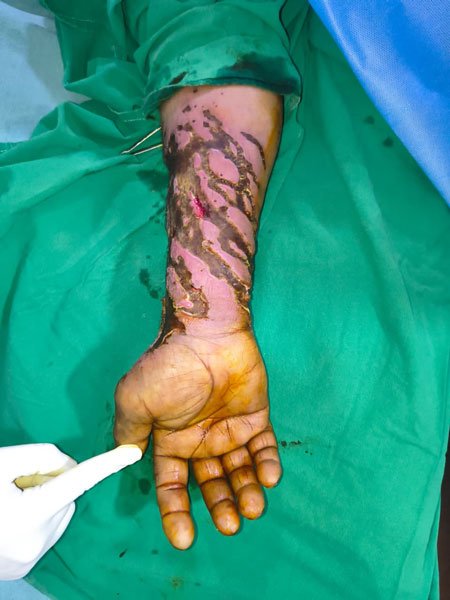This newfound knowledge could prove instrumental not only in devising treatments for pigmentation disorders but also in shielding individuals with lighter skin tones from the perils of melanoma, or skin cancer
An Indian-origin researcher has made significant strides in the field of pigmentation genetics, unveiling potential avenues for the development of melanin-modifying drugs to combat vitiligo and other pigmentation-related ailments, news agency PTI reported.
The study, led by Vivek Bajpai, an assistant professor at the University of Oklahoma’s School of Sustainable Chemical, Biological, and Materials Engineering, has successfully identified 135 previously unrecognized genes linked to pigmentation. This newfound knowledge could prove instrumental not only in devising treatments for pigmentation disorders but also in shielding individuals with lighter skin tones from the perils of melanoma, or skin cancer.
The color of human skin, hair, and eyes is dictated by melanin, a pigment capable of absorbing light. Bajpai’s research, in collaboration with experts from Stanford University, has shed light on the intricate mechanisms behind melanin production, pointing towards a promising path for enhancing our understanding of these processes. By employing cutting-edge gene-editing technology known as CRISPR-Cas9, the researchers meticulously altered over 20,000 genes within millions of melanocytes, the cells responsible for melanin synthesis. This manipulation allowed them to gauge the effects of gene removal on melanin production.
A remarkable breakthrough emerged from this study – a novel technique devised by Bajpai enabled the measurement and quantification of melanin-producing activity within melanocytes. By subjecting the cells to light, Bajpai could ascertain whether the melanin absorbed or scattered the light. This technique, known as side-scatter flow cytometry, facilitated the isolation of melanocytes producing varying levels of melanin. Subsequent analysis unveiled both previously known and newfound genes orchestrating melanin production in humans.
The collaborative efforts of experts from different institutions have illuminated a promising trajectory for the advancement of melanin-related research, with potential benefits spanning from medical treatments to agricultural innovations
The historical context of pigmentation, wherein darker skin tones served as a natural defense against the harsh ultraviolet radiation of equatorial regions, was addressed in the study. With the migration of human populations to areas with diminished sunlight exposure, the necessity for intense melanin production waned, ultimately resulting in lighter skin tones capable of absorbing more sunlight.
The research’s implications extend beyond human pigmentation. The technology and methodology employed by the research team hold potential in the study of melanin production in fungi and bacteria, which leverage melanin to increase pathogenicity. Identifying genes that regulate melanin in these microorganisms could offer a strategic route for developing interventions against their harmful effects on humans and crops.
It is noteworthy that Bajpai’s pivotal role in this study was carried out during his tenure as a professor at the University of Oklahoma. However, a portion of this groundbreaking research transpired during his postdoctoral research fellowship at Stanford University. The collaborative efforts of experts from different institutions have illuminated a promising trajectory for the advancement of melanin-related research, with potential benefits spanning from medical treatments to agricultural innovations.
******************************************************
Readers
These are extraordinary times. All of us have to rely on high-impact, trustworthy journalism. And this is especially true of the Indian Diaspora. Members of the Indian community overseas cannot be fed with inaccurate news.
Pravasi Samwad is a venture that has no shareholders. It is the result of an impassioned initiative of a handful of Indian journalists spread around the world. We have taken the small step forward with the pledge to provide news with accuracy, free from political and commercial influence. Our aim is to keep you, our readers, informed about developments at ‘home’ and across the world that affect you.
Please help us to keep our journalism independent and free.
In these difficult times, to run a news website requires finances. While every contribution, big or small, will makes a difference, we request our readers to put us in touch with advertisers worldwide. It will be a great help.
For more information: pravasisamwad00@gmail.com










